Social proof is a powerful psychological phenomenon that influences people’s behavior and decision-making. It can be seen in a variety of situations, but especially ecommerce, where people rely on product reviews and ratings to make purchasing decisions.
In this article, we will explore social proof, the different types, and how to use them to build trust, credibility, and loyalty among customers. We will also provide examples of effective social proof strategies that you can use to increase conversions and revenue.
What is Social Proof?
Social proof is the phenomenon that people emulate the behaviors of others in certain situations, especially when they aren’t sure how to behave. We tend to assume that other people (friends, coworkers, celebrities, experts, etc.) have more knowledge about what’s going on than we do, so we rely on their behavior.
The term “social proof” was coined in 1984 by Robert Cialdini in his book, Influence: The Psychology of Persuasion. It’s also called “informational social influence.”

For instance, if you’re in a social situation that you haven’t experienced before, you will probably take cues from the people around you in order to behave properly. This helps you fit in and saves you from making mistakes.
People look for social proof when they shop, as well. It’s a key part of conversion rate optimization. 95% of shoppers read online reviews before making a purchase and 82% of Americans ask for referrals and recommendations from family and friends before making a purchase. 79% of consumers say they trust online reviews just as much as they trust a friend’s recommendation.
Customers want reviews, recommendations, testimonials, media coverage, endorsements, and other signals to help them make the right decision. This is why stores work so hard to collect reviews. More positive reviews generally means more future conversions.
Without social proof, you’ll have a lot of buyers struggling to make the right decisions because they lack key information.
This doesn’t mean social proof is unethical or predatory. Remember, people want social cues. They feel more comfortable when they know how other people behave.
Social proof works the other way, too. A bad review can convince shoppers not to buy, especially if that review touches on a problem or concern that’s especially painful for the shopper.
The 6 Types of Social Proof
In general, there are six kinds of social proof. Some examples of social proof will fall into multiple categories.
1. Expert social proof
This type of social proof relies on the endorsements, recommendations, or opinions of experts in a particular field or industry. People tend to trust and follow the advice of experts because they are perceived as having a deep understanding and knowledge in their area of expertise.
2. Celebrity social proof
This form of social proof is based on endorsements or testimonials from celebrities or well-known personalities. Brands often use celebrity endorsements to influence consumer behavior and build trust, as people are likely to follow the actions of someone they admire.
3. User social proof
User social proof comes from the feedback, testimonials, or reviews of customers or users who have already used a product or service. This type of social proof is highly effective because potential customers often trust the opinions of people who have had firsthand experiences with the product or service.
4. Wisdom of the crowd
This type of social proof is based on the idea that a large group of people collectively possess more knowledge, wisdom, or expertise than any single individual. Wisdom of the crowd is often used to demonstrate the popularity or success of a product or service, as people are more likely to be influenced by the choices of the majority.
5. Wisdom of friends
This form of social proof is derived from the recommendations, opinions, or actions of one’s friends, family, or social connections. People are more likely to trust and follow the advice of those they know and have a personal relationship with, as they feel that these individuals have their best interests in mind.
6. Certification
This type of social proof refers to licenses, memberships, awards, accolades, or approval by authoritative figures in a particular industry. People are more likely to trust brands that are acknowledged and viewed favorably by organizations they already trust.
How to Use Social Proof in Your Marketing
Ready to use social proof to increase your conversions and revenue? Let’s go over some key strategies you can use to implement social proof in your ecommerce store.
1. Add ratings and reviews to your product pages
Product reviews are the quintessential example of user social proof. They provide evidence that other people have used the product and were happy with the results. If you invest in any type of social proof, product reviews should be the one.
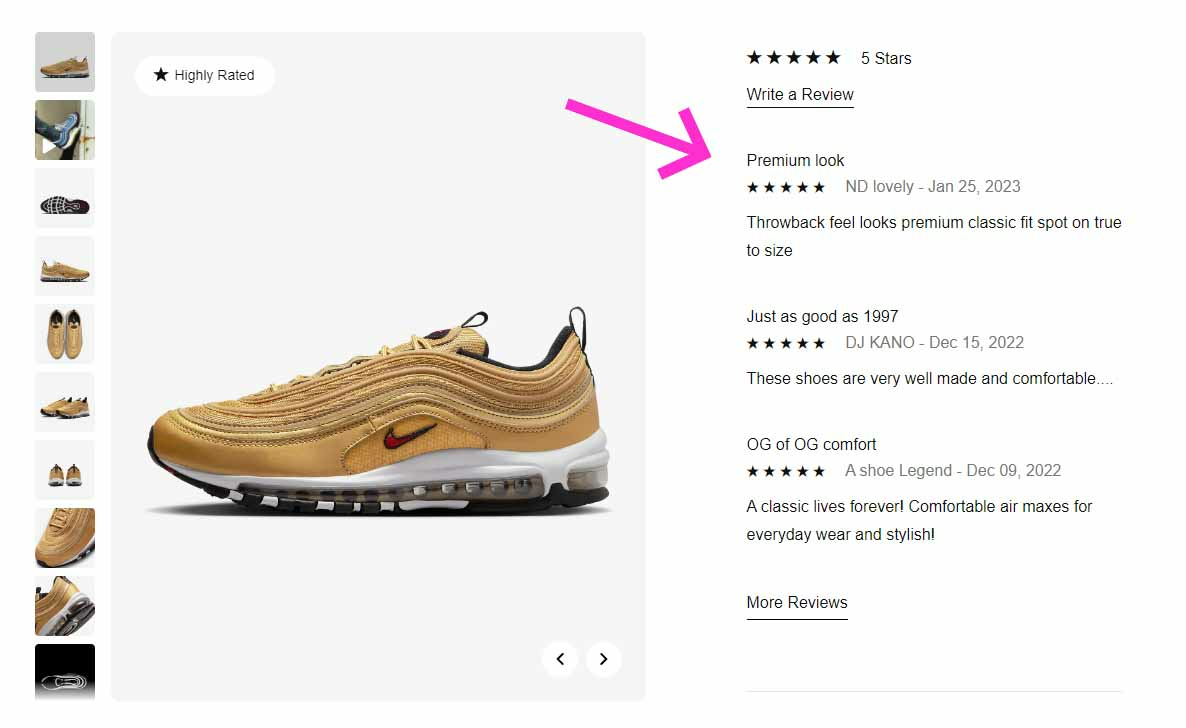
2. Add logos of past and existing customers to your site
If you’ve ever served or worked with a well-known brand, share that information throughout your site. Potential customers who respect those brands will transfer some of that respect to you.

3. Get a celebrity to endorse your products
This trick has worked for ages, but it’s still powerful. People rely on the advice and recommendations of celebrities they love and follow. You can leverage that good will by simply hiring them to promote your stuff.
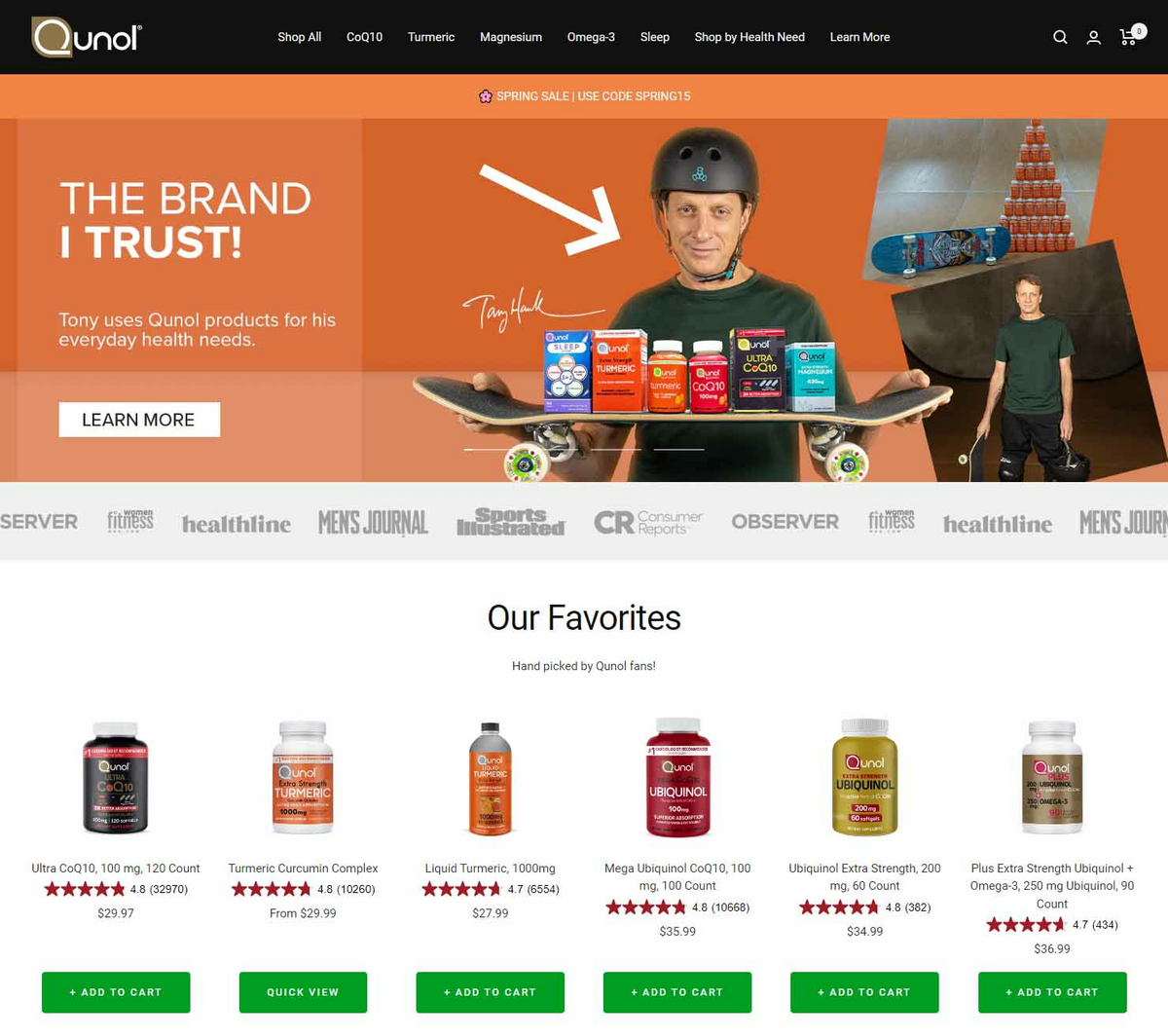
4. Get experts involved wherever you can
We’ve known for ages that people trust products that are trusted by experts. (“Nine out of 10 dentists recommend Colgate.”) If you can get an expert to endorse your products, customers will feel much more comfortable about making a purchase.

Here are some ways to leverage experts for social proof:
- Create social media content where you interview experts.
- Invite experts to your live or virtual event.
- Ask an expert to write a review of your product.
- Sprinkle quotes from experts throughout your site and product packaging.
- Put an expert’s face on your product.
Keep in mind, however, that your experts need to be verifiable. If you tell your customers that your product is endorsed by a doctor of dermatology, you ought to be sure that someone can look up that doctor’s name and find education records, work history, and proper licensing. Falsifying experts will land you in hot water (and possibly a lawsuit).
5. Promote your own awards and accolades
Did you win an award or receive a prize because of your amazing products or service? Were you ranked on an important list? Show it off! Put those badges, symbols, or logos on your website so potential customers know that your products are winners.

6. Incorporate user-generated content
User generated content refers to content that’s created by your customers, followers, and fans. It usually takes the form of photos and videos. When potential customers see your past customers being so happy with their purchase that they have to share about it, they think, “Hey, I want that feeling too.”
Encourage your followers to share content about your products on social media using a branded hashtag. Review this hashtag regularly and highlight the best submissions.
Boxed Water, a sustainable drinking water company, has perfected user-generated content. They post their followers’ content on Instagram. This is a great way to produce social media content and exhibit how much people love your brand.

7. Partner with influencers for marketing campaigns
Think of influencers like micro-celebrities. People follow influencers because they like what those influencers do and say, as well as the products they use and promote. By working with influencers, you can create celebrity social proof. It’s also a great way to expose yourself to new audiences.

Once an influencer promotes your products, be sure to amplify that promotion across your own social and email channels. Put it on your website, as well, to help conversions.
In most cases, you will need to compensate the influencers you work with in some way, either with free product or direct payment.
8. Share praise from your customers
Sometimes a customer leaves a glowing review or praises you immensely on social media. Don’t let those kind words sit around unnoticed, limited to only the happy customers’ followers.
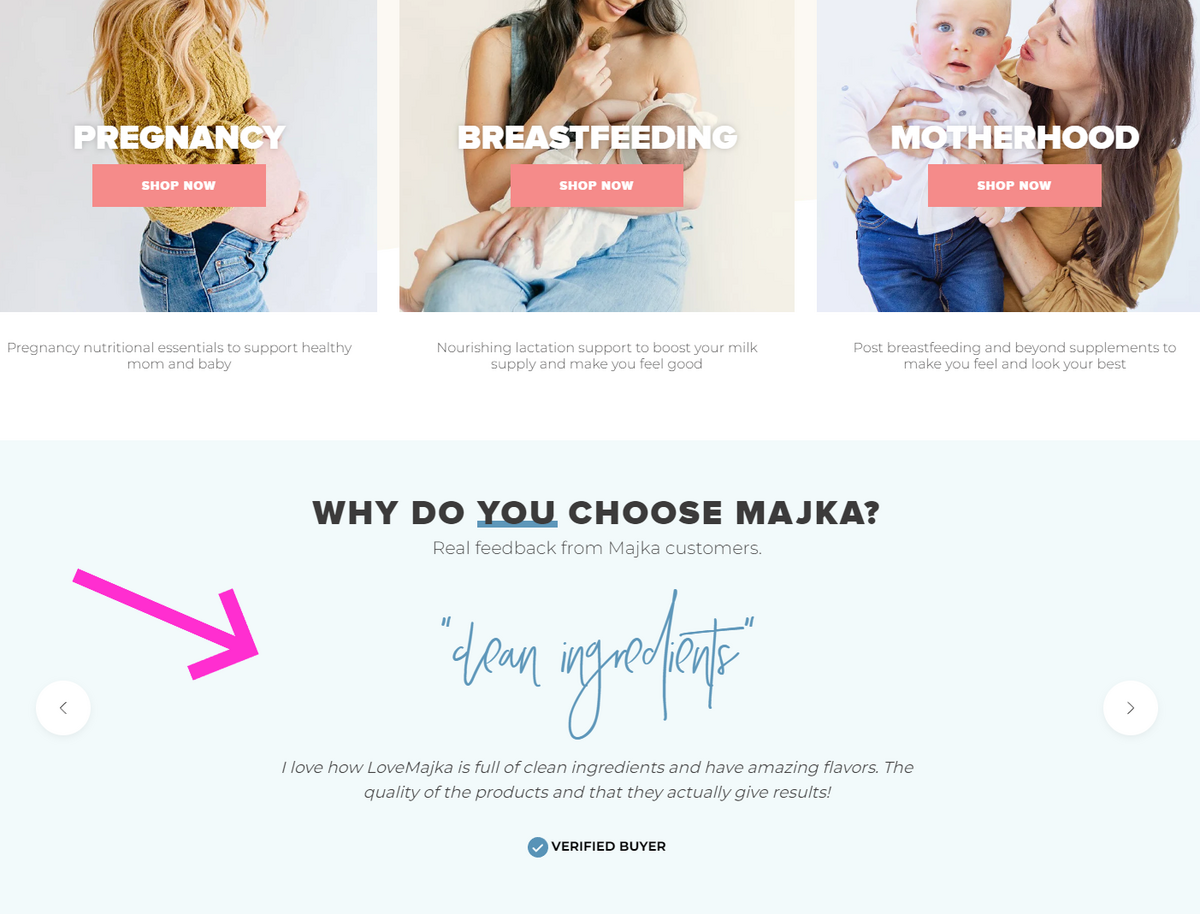
Instead, get as much mileage out of your customer love as possible by showing them off on your social media profiles, email list, and website. Retweet or re-post the comment on social media, add it to the bottom of an email campaign, or publish it somewhere on your site.
9. Brag about the size of your customer base
People feel more comfortable making decisions when they know that a large group of other people have already made the same decision. A single person may be wrong, but surely a large group has it figured out.
An easy way to add social proof to your online store is to simply showcase the number of customers you’ve served or products you’ve sold. It’s a powerful way to prove that a lot of people are happy with your business.

10. Encourage customers to rate and review on third-party platforms
No matter how ethically you behave, customers don’t always trust the social proof you place on your own website. They might visit third-party platforms like Trustpilot, Yelp, Google Business, or your Facebook page to decide whether they can trust your brand. (There are lots of options.)
In fact, one study found that 80% of potential customers are more likely to buy if they see positive reviews on Facebook. 41% said they are more likely to engage with a brand if they see lots of ratings and reviews.
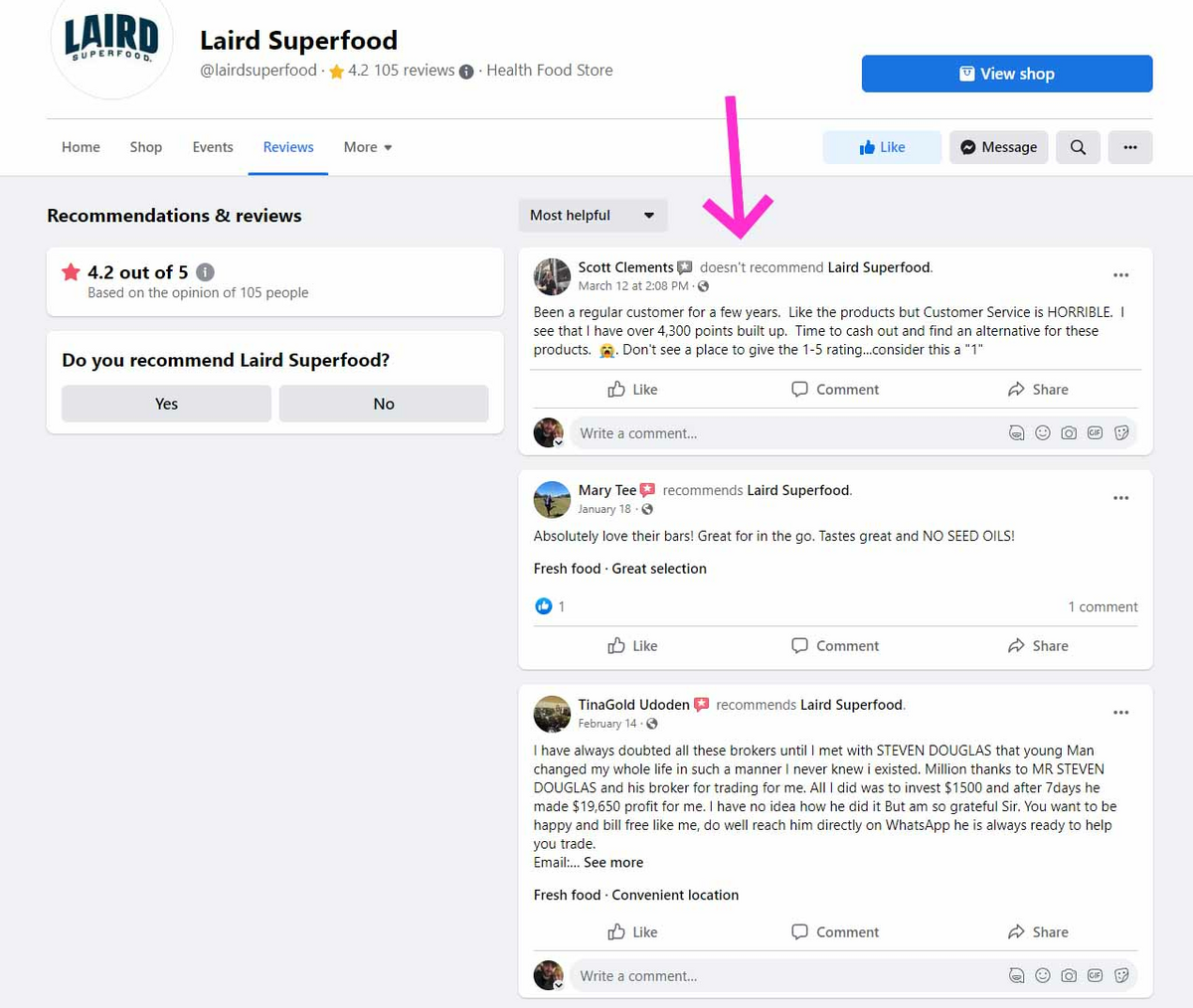
Encourage your customers to leave good ratings wherever you think it will do the most good. If your customers tend to come from social media, get Facebook reviews. If they come through search, get Google reviews.
How do you get reviews? Simply ask. Ask your fans to leave reviews whenever you communicate with them, like in transactional emails, social media posts, or even email marketing campaigns. Consider offering an incentive for their support.
11. Show off your press appearances/mentions
If a publication that people recognize says something nice about you, share the mention to your followers and customers. Add it to your product details page or home page.
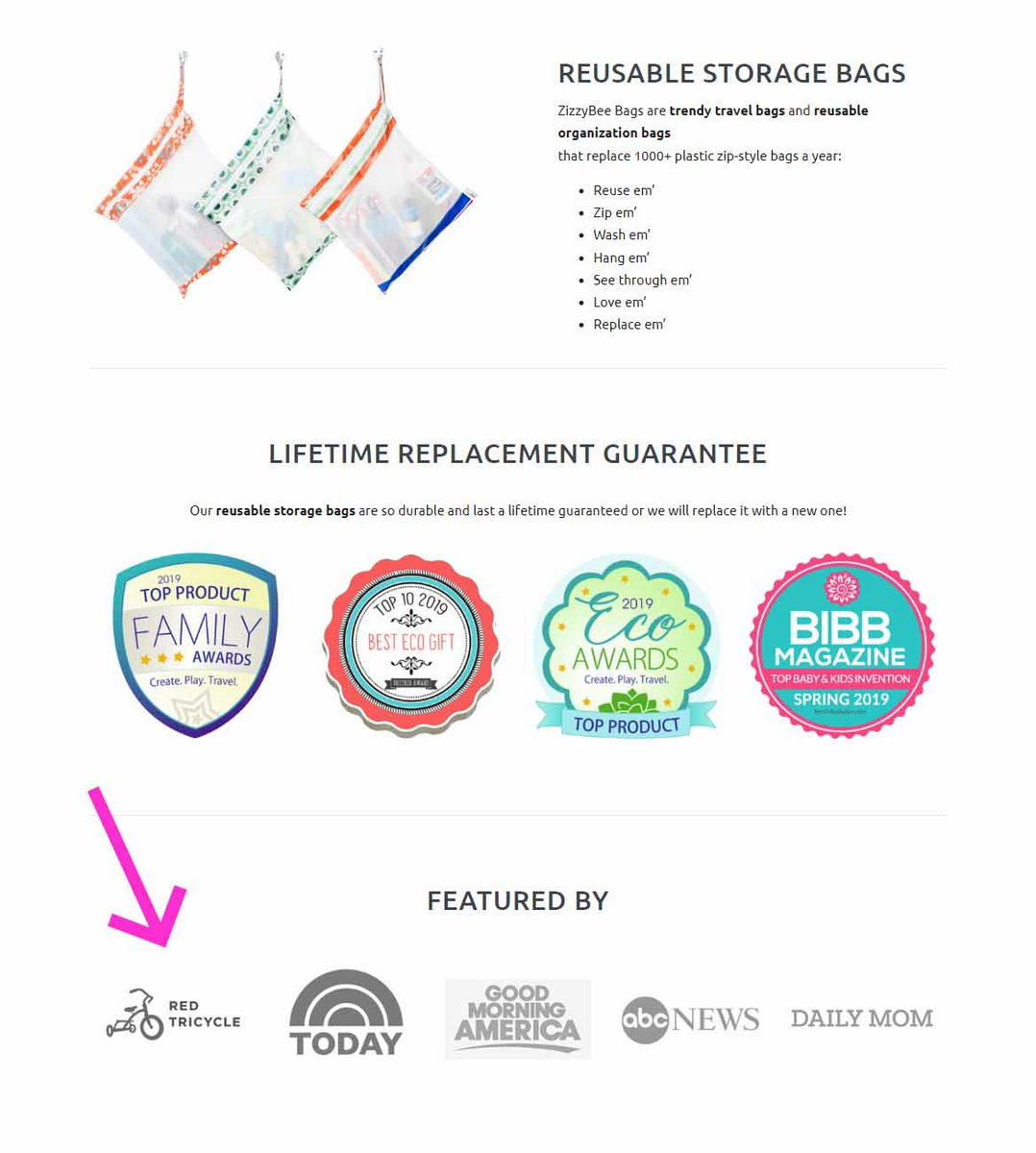
If you get a lot of press, consider creating a newsroom section of your site. Organize this information carefully so people – including other members of the press – can find it.
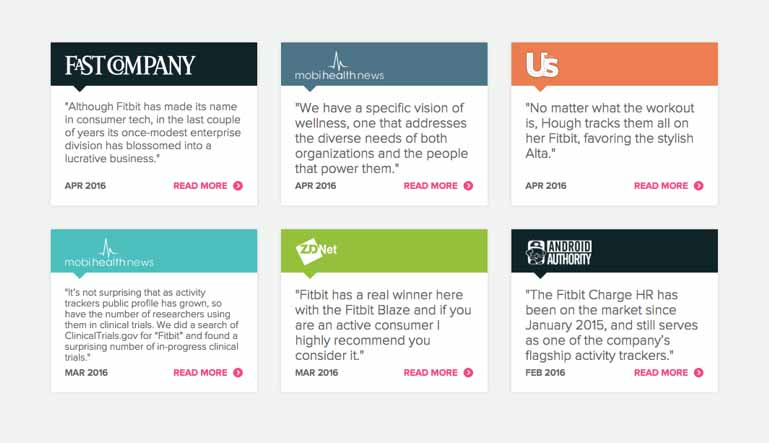
12. Promote your certifications and memberships
If your brand is a member of an organization or has a specific licensing that makes your products legitimate, make sure to share that information with potential buyers. Notice how Nature Made uses the expert certification of the USP (U.S. Pharmacopeial Convention) to speak for their vitamins.

Social Proof Frequently Asked Questions
Social proof can be a tricky concept, so you may have some questions. Here are some questions people frequently ask about social proof and how to use it.
Why is social proof important?
Social proof is important because it can help build trust, credibility, and loyalty among customers, which can ultimately lead to increased sales and revenue for a business. Additionally, social proof can help create a sense of community and belonging around a product or service. When people see that others have had positive experiences with a brand, they may feel more inclined to engage with that brand and become part of that community.
Is social proof ethical?
Social proof, in and of itself, is neither ethical nor unethical. It is simply a psychological phenomenon that occurs when people use the behavior and opinions of others as a guide for their own behavior.
However, the use of social proof can become unethical if it is manipulated or misrepresented. For example, hiring people to write fake positive reviews or testimonials or selectively displaying the good reviews but not the bad ones would be deceptive and unethical.
Use social proof in an honest and transparent way. This means using genuine feedback from real customers and displaying both positive and negative reviews. This will build trust and credibility with your customers and avoid unethical practices that may harm your reputation.
What is negative social proof?
Negative social proof is a psychological phenomenon that occurs when people observe the actions or behaviors of others, and as a result, they are less likely to engage in the same behavior. In other words, negative social proof is the opposite of social proof, which is based on positive feedback and endorsements.
For example, if a website displays a message that says “1,000 people have already left this site because they found it difficult to use,” this is an example of negative social proof. The message is designed to discourage people from leaving the site by implying that many others have already done so.
Which proof source is usually the most powerful?
The most powerful form of social proof often comes from people who are similar to the person who is considering the product or service. This is known as user social proof and can be highly effective because people tend to trust the opinions and experiences of those who are similar to them.
For example, if someone is looking to buy a new computer, they may be more influenced by the opinions of their friends or colleagues who have similar needs and interests, rather than by the opinions of strangers or experts in the field.
Getting the Right Social Proof
How do you know which social proof to use throughout your ecommerce site? That information comes from your customers. It’s your job to learn what types of information they need to make a purchasing decision.
And the best way to learn from your customers is by getting their feedback. You need as much information as possible from real people to learn what pushes them towards buying.
UserInput’s managed customer research service pairs you with real people in your target market to collect direct, unfiltered feedback about your shopping experience. Our testers get paid to review ecommerce sites, but they are far from being “yes (wo)men.” You’re guaranteed to receive feedback that is clear and comprehensive.
We can help you learn what your customers are missing, so you can fix it and increase your revenue. Start a research project today.


